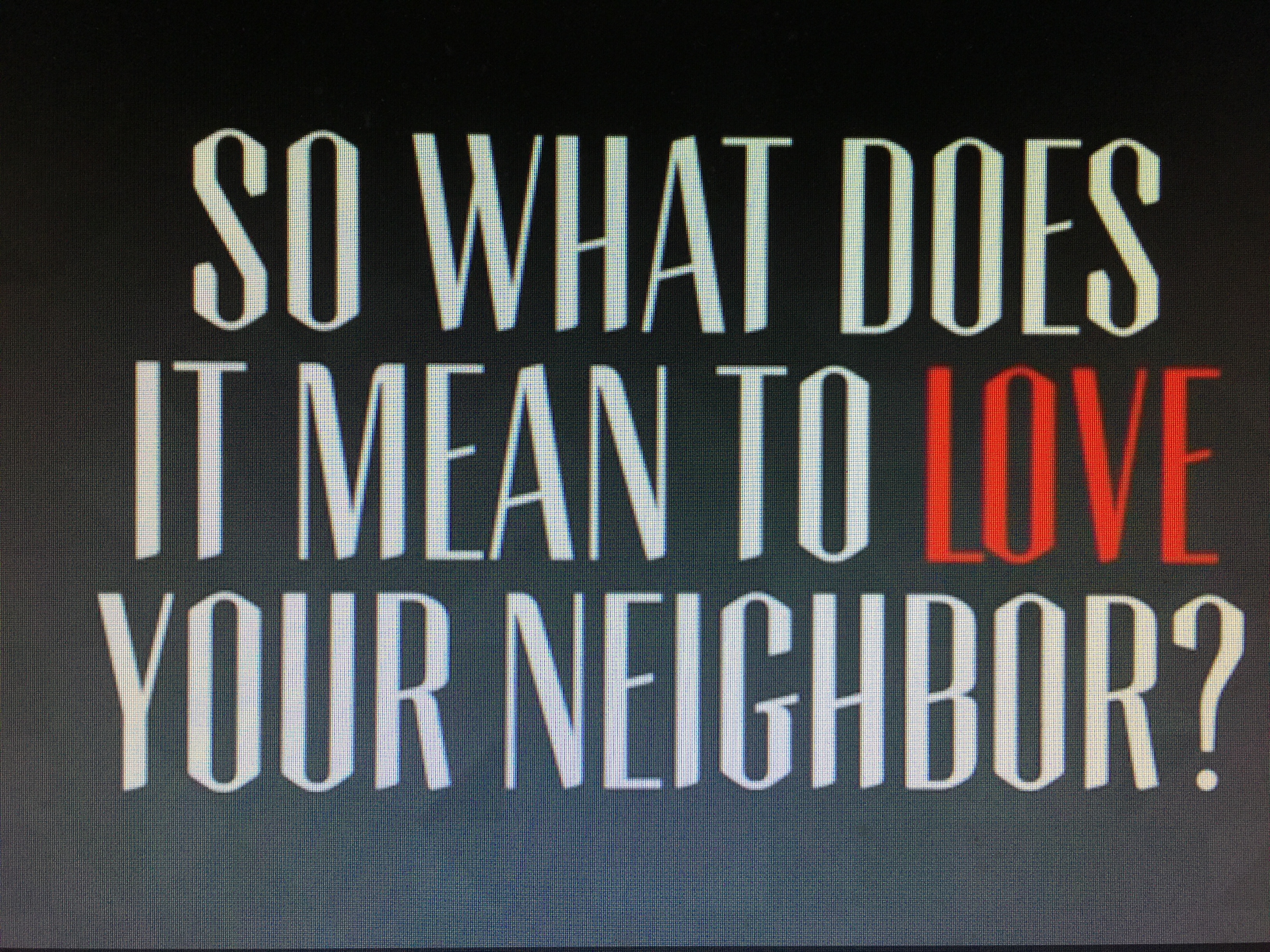
Rabbi Akiva called the central verse in this week’s Torah portion Kedoshim: “Klal gadol baTorah – a great rule of the Torah.”
This verse is among the most famous in the Hebrew Bible and the most misunderstood – “V’ahavta l’reiacha kamocha… You shall love your fellow/neighbor as yourself….” (Leviticus 19:18)
The verse raises at least three questions.
First – how can we be commanded to feel love or, for that matter, anything else? We can’t, which means that the mitzvah to “love” must involve something other than feelings.
The spiritual teacher David Steindl-Rast writes that there’s one thing that characterizes “love” in all its forms – erotic, romantic, familial, tribal, national, spiritual, religious, and even love we feel for our pets. That one thing is found in our yearning to belong to and be connected with something greater than ourselves.
“Love,” he says “is a wholehearted [and willful] ‘yes’ to belonging” (Essential Writings, p. 73) with all the implications that attachment to, responsibility for and accountability with others bring.
Our yearning to belong inspires greater understanding of who we are and what is our role in the world. That yearning links us heart to heart and soul to soul with others, with creatures large and small, with nature, the universe, the cosmos, and God.
Jewish mystics taught a central truth; that we are physically and spiritually part of a vast Oneness. We share common origins and a common destiny with each other and with every people and nation. Consequently, we’re responsible for one another and accountable for how we behave with family, friend, foe, and stranger.
Too often our idea of “self” (as suggested in “You shall love your fellow as yourself”) is limited to our little egos. If that verse, however, is to mean something then we need to think about “love” differently; not as a feeling but as an attitude of the heart.
V’ahavta understood this way enables us to fulfill the commandment “to love our fellows” because our response to them isn’t based in a feeling but as an act of will when we take responsibility for others because we belong to each other as part of the great Oneness of humankind.
Second – What does it mean to “love” someone as we love ourselves?
Maimonides taught that if it’s ever a toss-up between saving our own lives and saving another, we’re obligated to save our own lives first.
Nachmanides added that what we wish for ourselves we must wish for others whether we know them or not, like them or hate them.
Third – Does this commandment demand that we “love” our enemies in some way?
No. Indeed, there are some people we can’t wish well as we wish for ourselves because their deeds are too heinous to tolerate or forgive.
That being said, I’ll never forget Israeli Prime Minister Menachem Begin’s words on the White House lawn at the signing of the Camp David Peace Accords with Egypt in 1978.
Begin told the world that the Jewish people considers it amongst the greatest of mitzvot to make of a “ra” ( an “evil” person – an enemy) into a “rea” (“a fellow” – a friend).
Though Egypt and Israel are hardly “friends” as we understand friendship between nations, since that day (September 17, 1978) there has not been one day of war between Israel and Egypt.
Though Judaism doesn’t command us to “love” our enemies, tradition requires us to give a penitent person a chance at reconciliation.
As a people we’re required always to act ethically towards everyone, including our enemies. In doing so we leave open the possibility of transformation should circumstances warrant (see Exodus 23:4).
It’s difficult to imagine peace given the hatred and mistrust that animates the current relationship between Israel and the Palestinians, but we ought to remember that once Germany was our people’s greatest enemy. Today Germany is the least anti-Semitic country in Europe.
Germany and Japan were America’s bitter foes seventy-five years ago. Protestants and Catholics in Northern Ireland were once killing each other. Today, these former enemies have laid down their guns and established peace.
The mitzvah of loving one’s fellows requires at the very least that we keep open our hearts to the possibilities of change in our relationships with our enemies for in the end, we are all related and we share a common destiny.
Shabbat shalom!




















 More news and opinions than at a Shabbat dinner, right in your inbox.
More news and opinions than at a Shabbat dinner, right in your inbox.